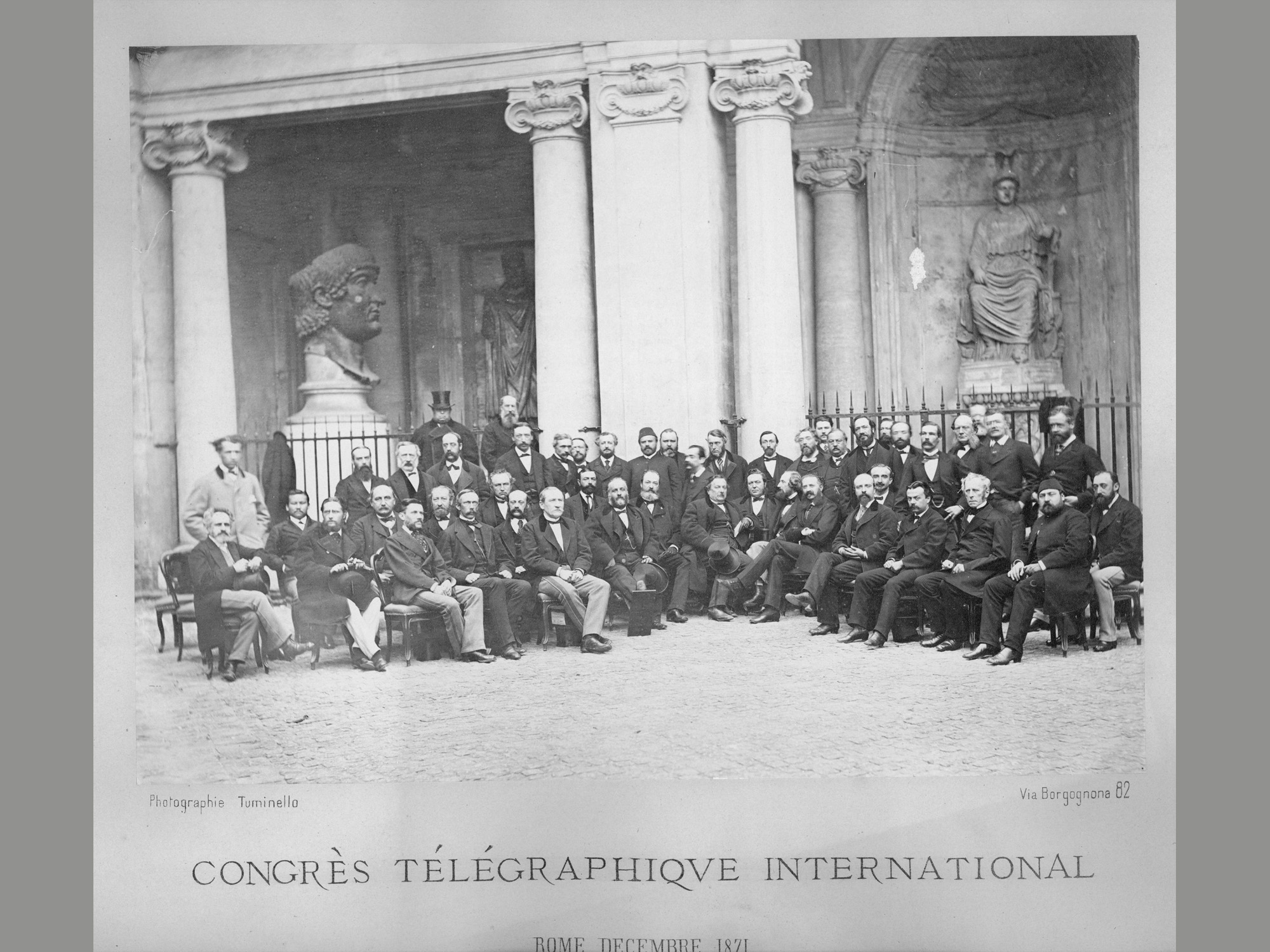1871: Negotiating the future of telecommunications but where are the women?
This image, taken from the Archives of the International Telecommunication Union (ITU), shows the heads of delegations at the third International Telegraph Conference held in Rome in 1871. Fast-forward to the 21st Century and the ITU's most recent plenipotentiary conference to learn about Girls in ICT Day as ITU and delegations work to address the gender gap.
Notice anything curious about this photo? The date is 1871 and the all-male delegations are in Rome negotiating the future of telecommunications at ITU's (then known as the International Telegraph Union) third plenipotentiary conference. But where are the women? It will not be until 1932 at the fifth plenipotentiary conference where ITU also became the 'International Telecommunication Union' that women will participate as delegates with the former Union of Soviet Socialist Republics sending telephony specialist Marie Dobruskina and chief engineer Sarah Ginsburg. It will take until 1965, 100 years since the creation of ITU, for the first female to head a Delegation with Maria Cristina Sejas Sierra heading negotiations for Bolivia.
Although times have changed and the industry is forever rapidly evolving, the information and communication technology (ICT) sector remains male-dominated. "Where are the women?" is still being asked today. The ICT industry continues to be a growing sector for employment. Many countries and regions are predicting a shortage of qualified staff with math, science, engineering and computing skills to meet the growing demand. Globally, it is estimated that the world shortfall in skilled ICT professionals exceeds 2 million. Despite the obvious benefits, many girls never even consider a career in ICT mistakenly believing the field to be boring, nerdy and generally not making a difference to people's lives.
ITU and many of its 193 Member States and 700+ members from the private sector and academic institutions are working to encourage women and girls to play a more substantive role in ICT and take part in inventing our future.
More information:
